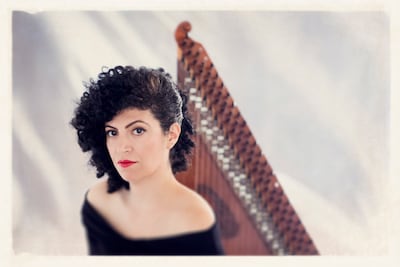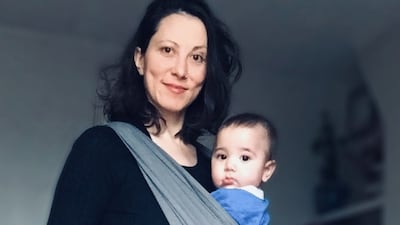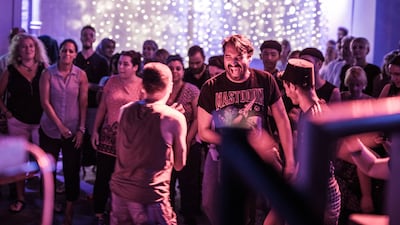The UKs longest-running annual Arab arts festival began on Thursday with a special programme dedicated to storytelling.
“Storytelling has a strong tradition in Arab culture,” said the organisers of the Liverpool Arab Arts Festival, which is now in its 25th year. “Hakawati means storyteller, and describes a person who can draw people in with their tale.”
The festival was founded in 1998 by Yemen-born Taher Qassim, a public health advocate in Liverpool, who, upon arrival to the UK decades ago, was disappointed to see his fellow Yemenis marginalised.
“I assumed that [they] would be well involved in the society, well-educated and prosperous,” he told The National in an Arab Showcase interview.
Cultural heritage, Qassim concluded, could build bridges and support better integration. But a few years after the festival was founded, it was beset with hurdles following the 9/11 terrorist attacks.
“There was a big debate whether we should do it or not,” Qassim told The National.
“And there were two teams. One thought it was a big risk, and the other one was saying, ‘If you don't do it now, you will never be able to do it.’ For me, there was no question … I wasn’t afraid.”
Now, 25 years since its inception, the festival celebrates a contemporary Arab culture that is more globally recognised but beleaguered by new challenges, from conflict and climate change to migration and the decline of the Arabic language in the diaspora.
Among the highlights of the Liverpool Arab Arts Festival 2023 will be a concert on Friday by Somali singer-songwriter Aar Maanta, known for blending western genres such as house music and reggae with Arabic and Somali music – two traditions that are heavily based on poetry and spoken word.
Maya Youssef, a Syrian composer and qanun player, will perform her acclaimed album Finding Home, dedicated to the experience of exile and loss, on July 14.
“As any Syrian will tell you, there is this overwhelming sense of loss and an overwhelming sense of grief,” Youssef said.
“The loss of that world was heart wrenching and, in a way, steered me towards a universal concept of home. With my latest album, I want to take people through a transformative journey, where they land in that place of home for them.”
It also reveals how, both at home and in the diaspora, Arab artists experiment with different mediums to engage with political and social issues.

In Passports, Mo Salah, Jinn and Other Complicated Things, presented both live and digitally, Palestinian writers Ahmed Masoud and Farah Chamma combine poetry, prose, music and theatre to explore the issues surrounding national identity as they describe travel and crossing borders.
British-Syrian poet lisa luxx and composer Jasmin Kent Rodgeman will address climate justice in what the dog said to the harvest, an immersive performance that brings together opera, dance, spoken word and film.
The comedy night Arabs Are Not Funny includes comedians such as British-Moroccan Fatiha El Ghorri, known for her riffs on marriage and divorce, and the generational differences in how these are perceived in Arab culture, as well as Esther Manito, who tackles the challenges of motherhood, identity and racial stereotyping.

Dancer Mahmoud El Haddad will fuse Egyptian cabaret, dance and monologue in his autobiographical performance Self-Entitlement, tracing the journey of an immigrant artist who struggles to fit in.
Family and community events will celebrate Arabic culture and language – while highlighting its recent decline.
Hadi Badi, an initiative launched to give Arab children in the diaspora better access to Arabic literature, will present focus on this in Yalla Nehky, an interactive session introducing children aged four to eight to Arabic children’s books.
The festival will culminate with a Family Day on Sunday, July 16, at Sefton Park Palm House with musical performances featuring The Ayoub Sisters, the Scottish-Egyptian multi-instrumentalists and composers, along with crafts, traditional practices such as calligraphy, and stalls with Arabic and Middle Eastern food.
“For 25 years, [the festival] has brought diverse groups of people together in Liverpool, increasing public knowledge and understanding of the richness of Arab culture, growing into a platform for Arab artists locally, nationally and internationally,” the organisers said in a statement.
“During this time, [it] has platformed thousands of Arab artists from across the world, brought international media coverage to the city, and demonstrated how an Arab-led cultural organisation can bring different cultures together in joyous celebrations.”
The Liverpool Arab Arts Festival 2023 runs from July 6 to 16. For more information, go to: https://www.arabartsfestival.com/





















